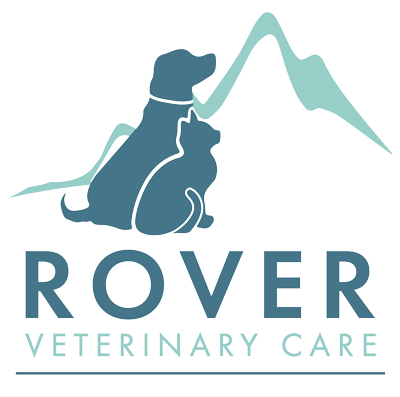Pet Euthanasia vs Natural Death: Navigating Difficult Decisions

Pet Euthanasia vs Natural Death: Navigating Difficult Decisions

Facing the end of your beloved pet's life is one of the most challenging experiences a pet owner can encounter. Whether you've cherished your companion for a few years or over a decade, saying goodbye is never easy. When it comes to end-of-life care, there are generally two paths you might consider—natural death or euthanasia.
While natural death involves allowing your pet to pass away without medical intervention, euthanasia provides a humane and painless way to end suffering. In recent years, in-home euthanasia has gained attention, offering a familiar and comforting environment for both pets and their owners during this difficult time. If you’re exploring this option in Reno, NV, Rover Veterinary Care is here to guide you through every step of the process.
Understanding Pet Euthanasia
What is In-Home Euthanasia?
In-home euthanasia is a service where a veterinarian visits your home to administer euthanasia in a setting that is comfortable for your pet. This option is often chosen by pet owners who wish to allow their pets to spend their last moments in a place they love, surrounded by familiar smells and the presence of their family.
The Process of In-Home Euthanasia
The process typically begins with a thorough consultation, where the veterinarian will discuss your pet’s condition, assess their quality of life, and explain the euthanasia procedure. If you decide to move forward, a sedative is usually administered first to ensure your pet is relaxed and calm. Once your pet is at ease, the veterinarian will administer the euthanasia medication, which typically brings about a peaceful passing.
Benefits of In-Home Euthanasia
- Comfort and Familiarity: Being at home can reduce anxiety for both the pet and the owner. Your pet can lie on their favorite bed or couch, surrounded by their favorite people and things.
- Personalized Experience: In-home euthanasia allows you to create the environment you want, whether that includes music, lighting, or having other pets present.
- Private Grieving: You and your family can grieve in privacy without the pressures of a clinical setting.
- Less Stressful for Pet Owners: Avoid the stress of transportation and waiting rooms, which can be particularly beneficial if your pet is already anxious or in pain.
Natural Death
What is Natural Death?
Natural death, as the name suggests, involves allowing your pet to pass away without medical intervention. Some pet owners prefer to allow their pets to die naturally, believing it to be a more holistic approach or feeling uncomfortable with the decision to euthanize.
The Natural Dying Process
The natural dying process can be prolonged and may involve periods of discomfort or distress, which can be difficult for both the pet and the owner to witness. It’s essential to be prepared for the emotional and physical challenges that may arise during this time.
Considerations for Natural Death
- Quality of Life: Consider the potential for prolonged suffering. Monitoring your pet's pain and discomfort levels is crucial.
- Veterinary Support: Regular check-ins with a veterinarian can help manage symptoms and maintain comfort.
- Palliative Care: This involves pain management and comfort care to ease your pet's final days.
- End-of-Life Signs: Understanding signs of pain or distress can help you make informed decisions about transitioning to euthanasia if necessary.
Making the Decision
Assessing Quality of Life
Whether considering euthanasia or allowing a natural death, the quality of life should be the primary focus. Using a quality of life scale can help you objectively assess factors such as pain, mobility, appetite, and happiness.
Discussing with Family and Veterinarian
Open communication with family members and your veterinarian is essential. Everyone involved should feel comfortable with the decision, ensuring that it’s made with compassion and consideration for your pet’s well-being.
Emotional Readiness
Coming to terms with your pet's impending death is emotionally taxing. It’s important to consider your own mental and emotional readiness when making end-of-life decisions.
Why Choose Rover Veterinary Care in Reno, NV
If you’re considering in-home euthanasia in Reno, NV, Rover Veterinary Care offers a compassionate and professional service tailored to your pet's needs. Their experienced veterinarians understand the profound bond between you and your pet and aim to make this transition as peaceful and comfortable as possible.
Personalized Support
Rover Veterinary Care provides personalized care, ensuring that you and your pet receive the attention and compassion needed during this difficult time.
Compassionate Expertise
With their extensive experience in end-of-life care, Rover’s veterinarians offer guidance and support, helping you make informed decisions about your pet's care.
Community Connection
Rover Veterinary Care is deeply connected to the Reno community, providing trusted services to pet owners across the area.
Conclusion
Deciding between euthanasia and natural death is incredibly personal and complex. It requires careful consideration of your pet’s quality of life, your emotional readiness, and the available support systems. By understanding the options and seeking guidance from compassionate professionals like those at Rover Veterinary Care, you can make a decision that honors the love and life shared with your beloved pet.
If you're considering in-home euthanasia in Reno, NV, and need more information or support, contact Rover Veterinary Care today. They’re here to help you through every step of this difficult journey and ensure that your pet's final moments are filled with peace and love.
